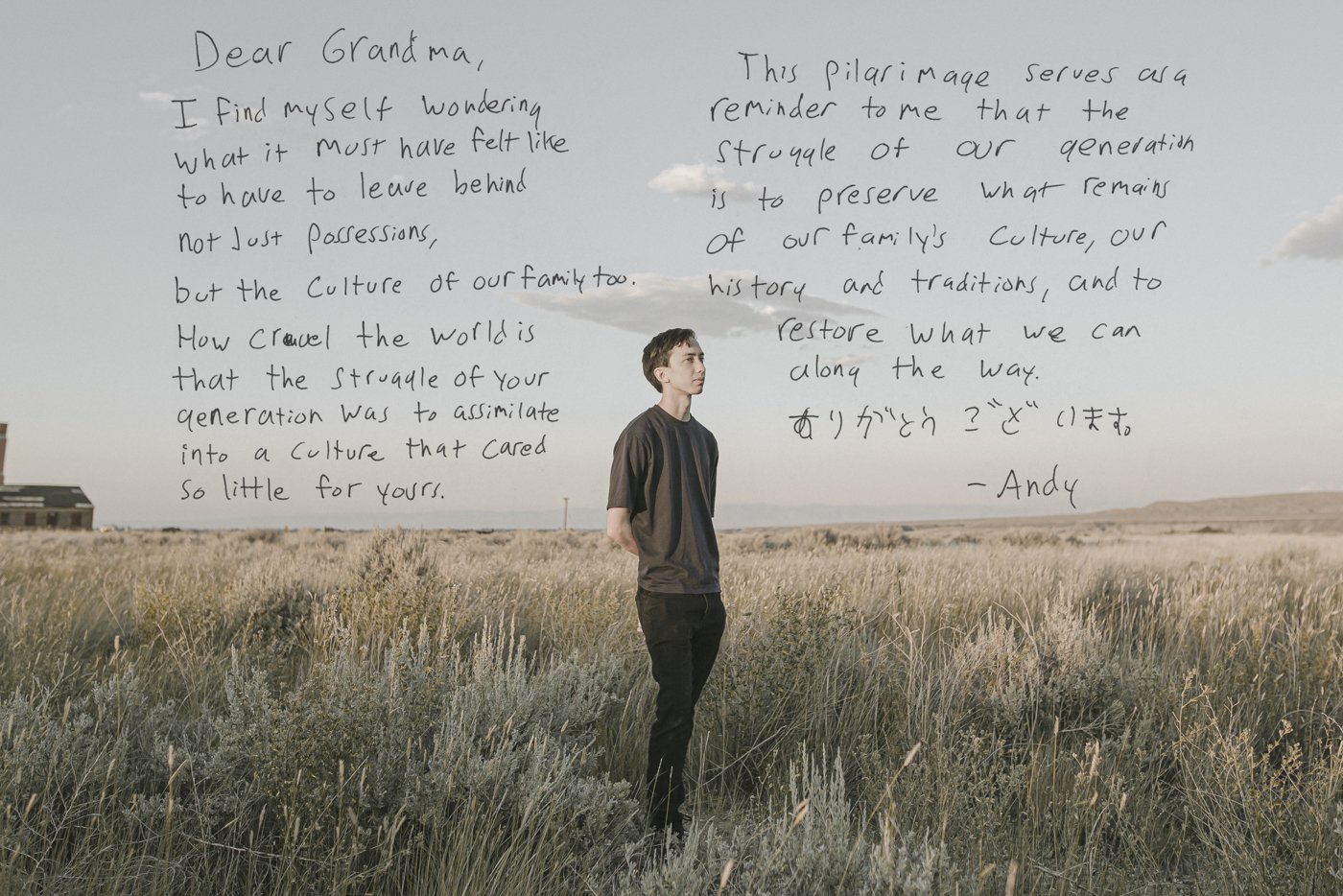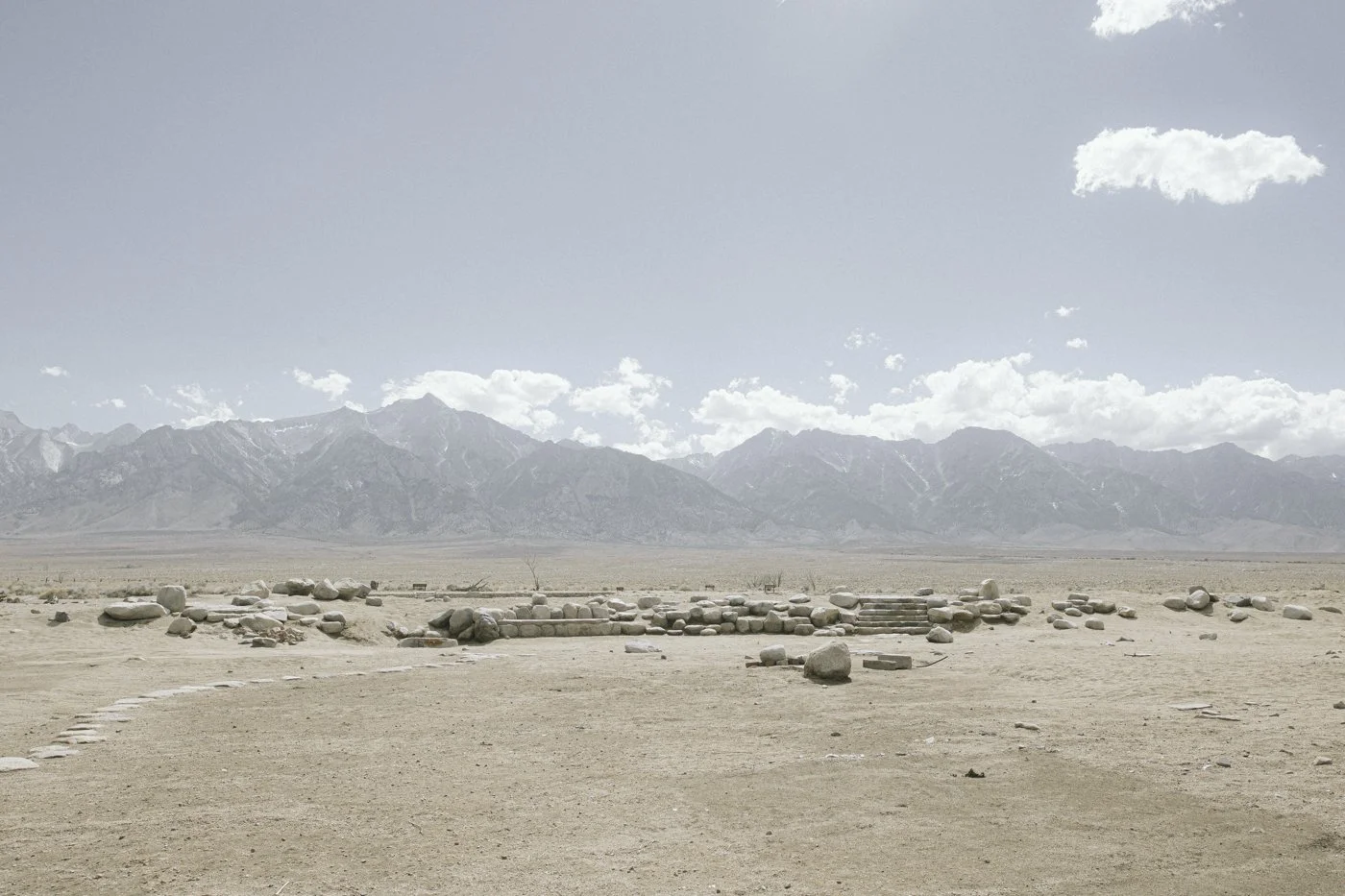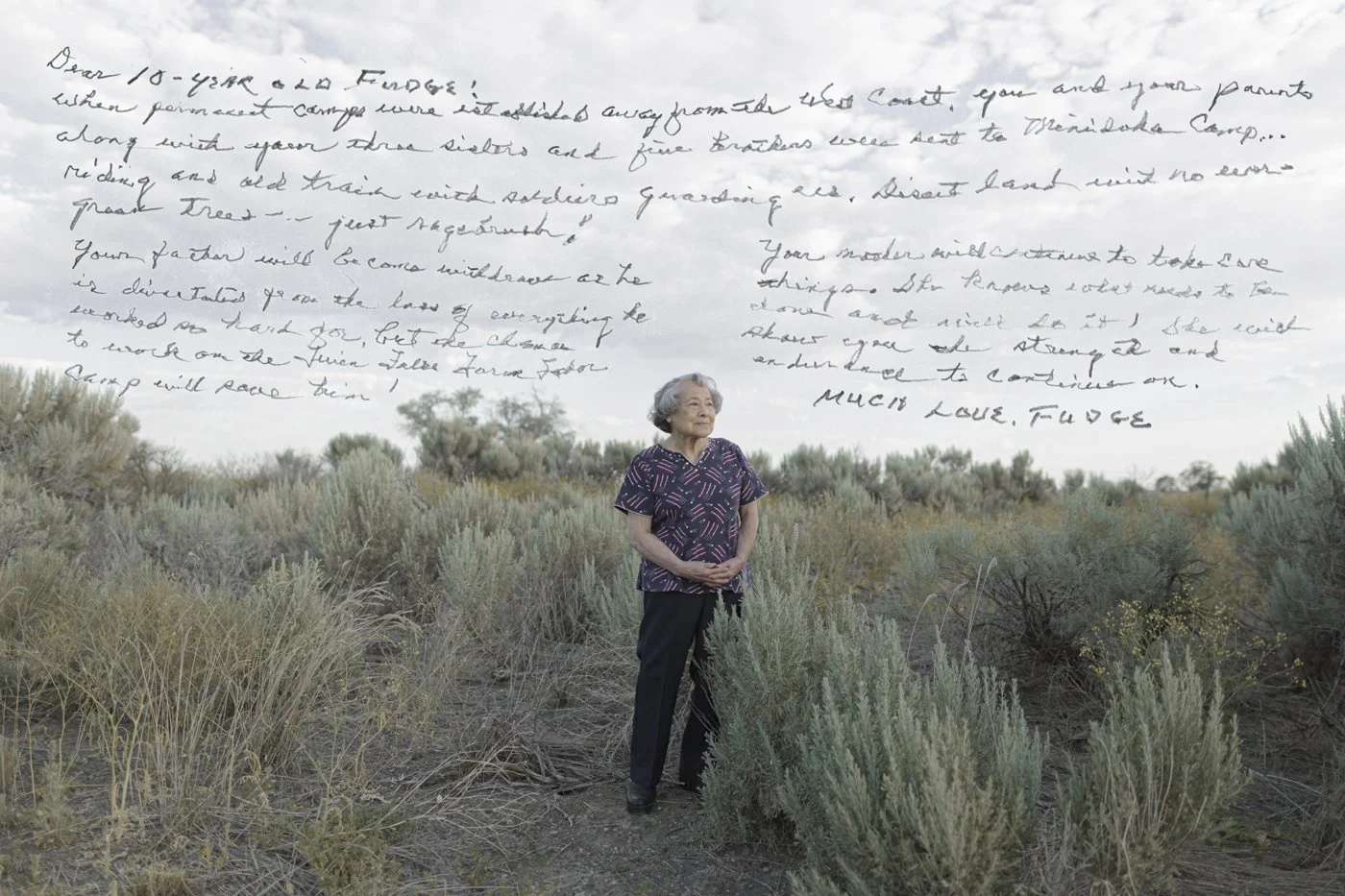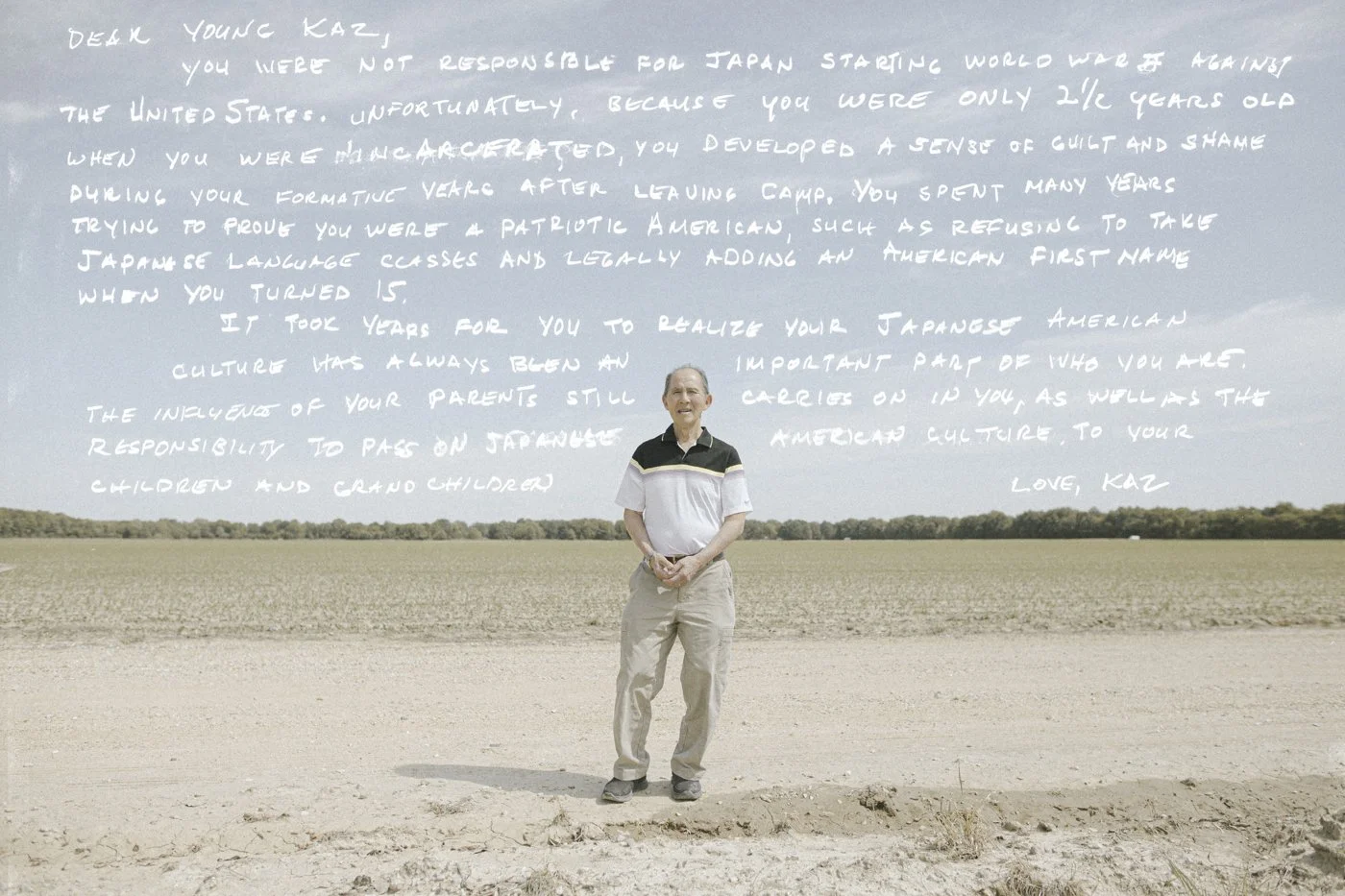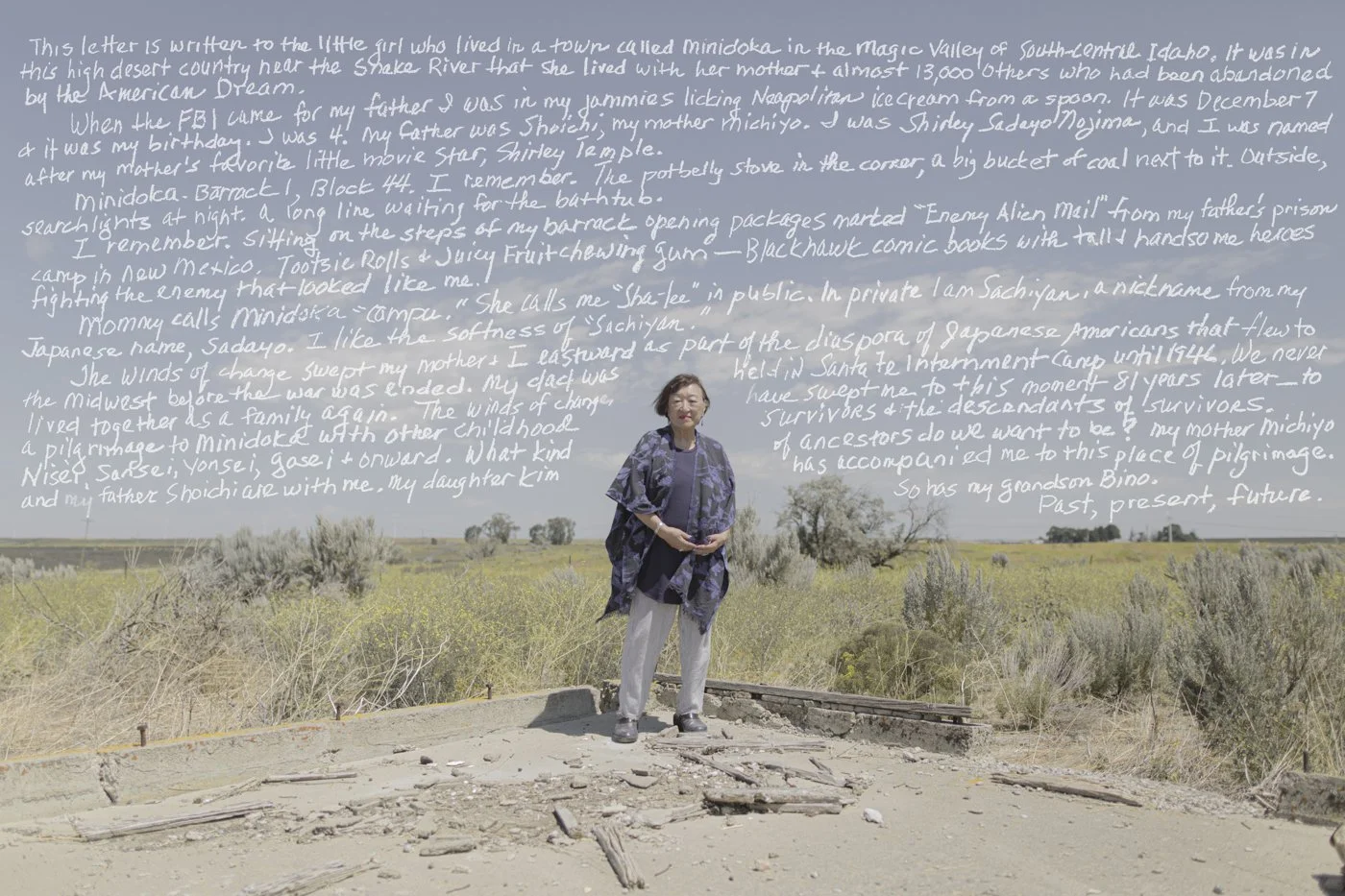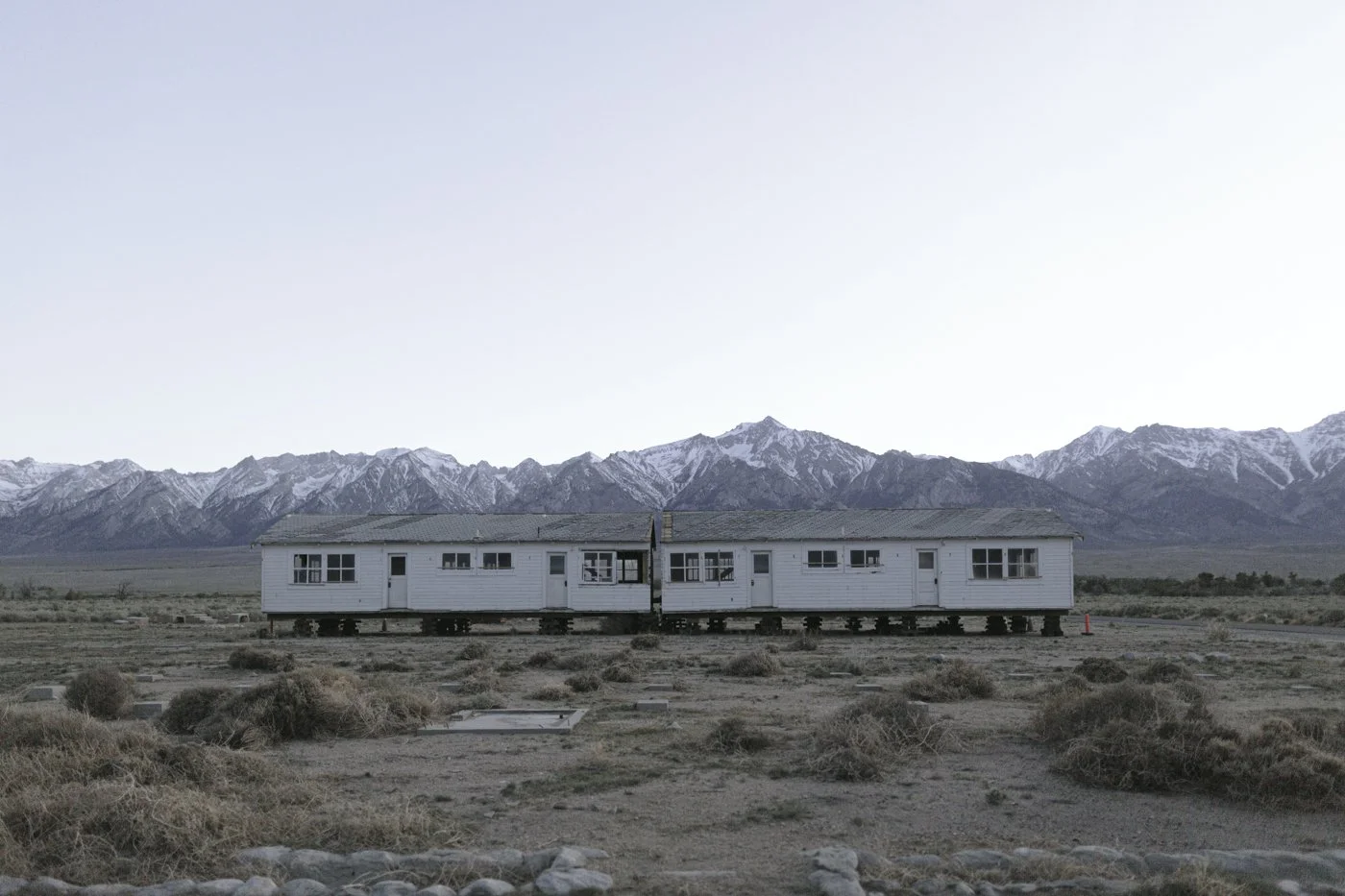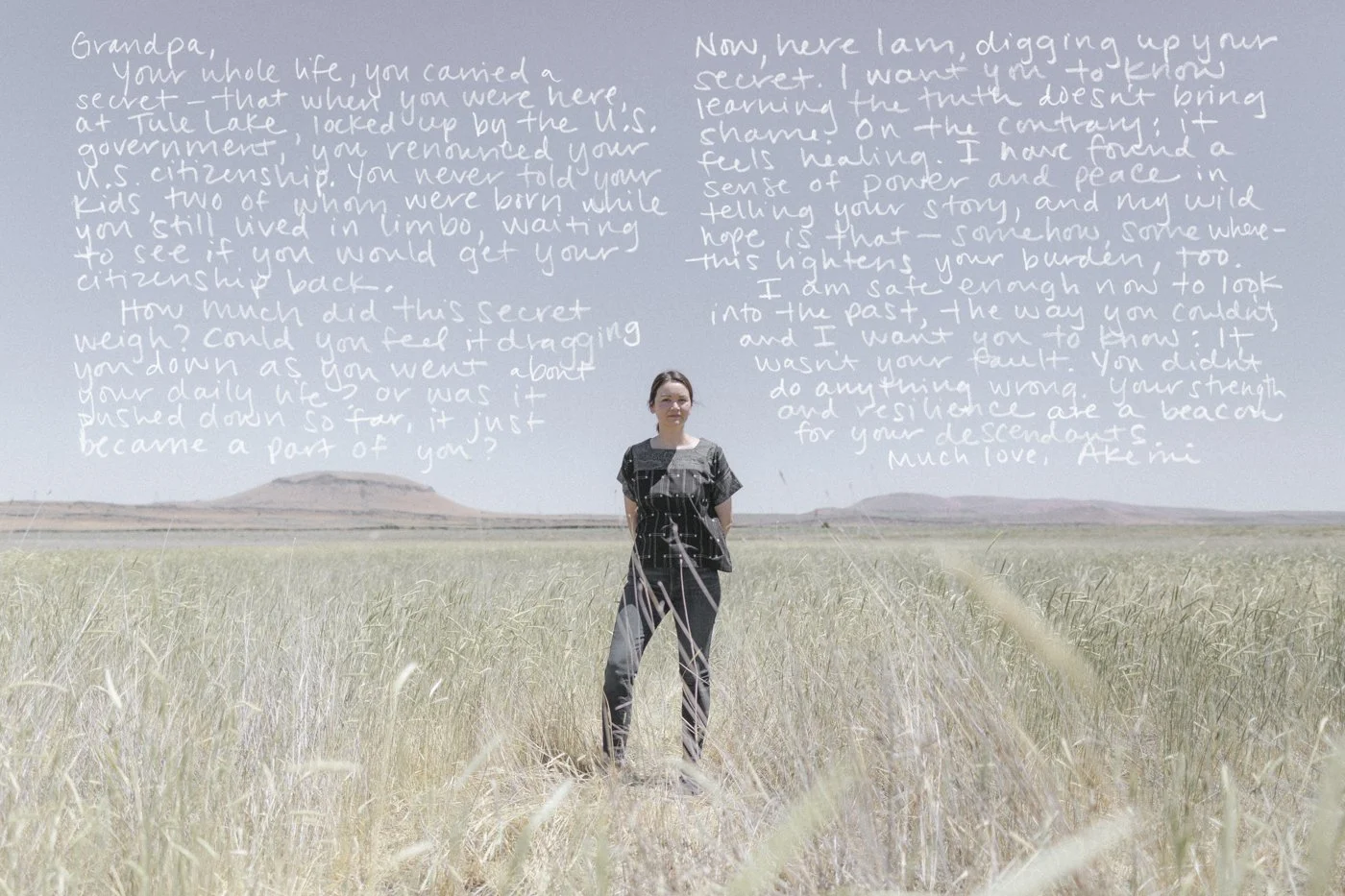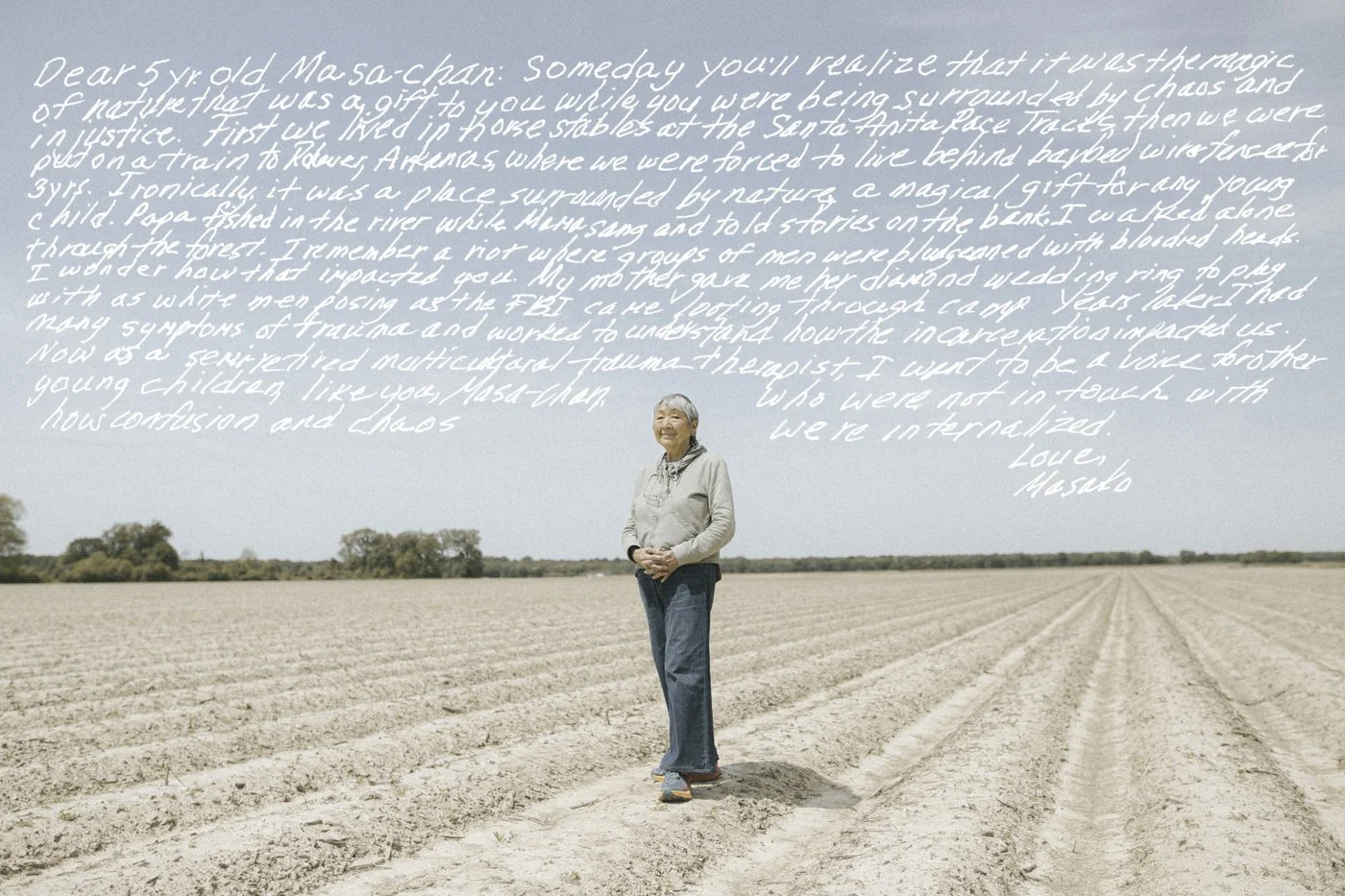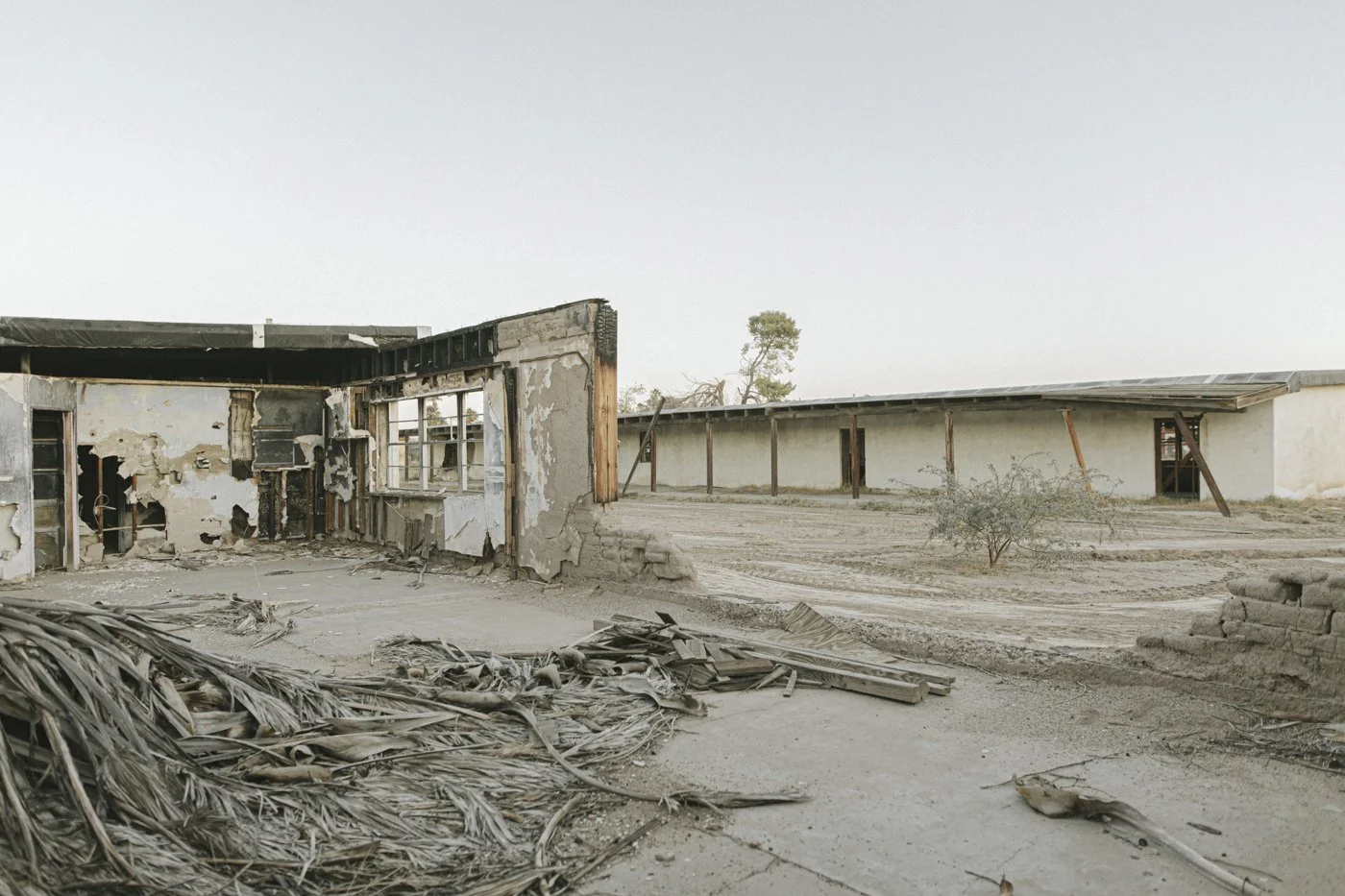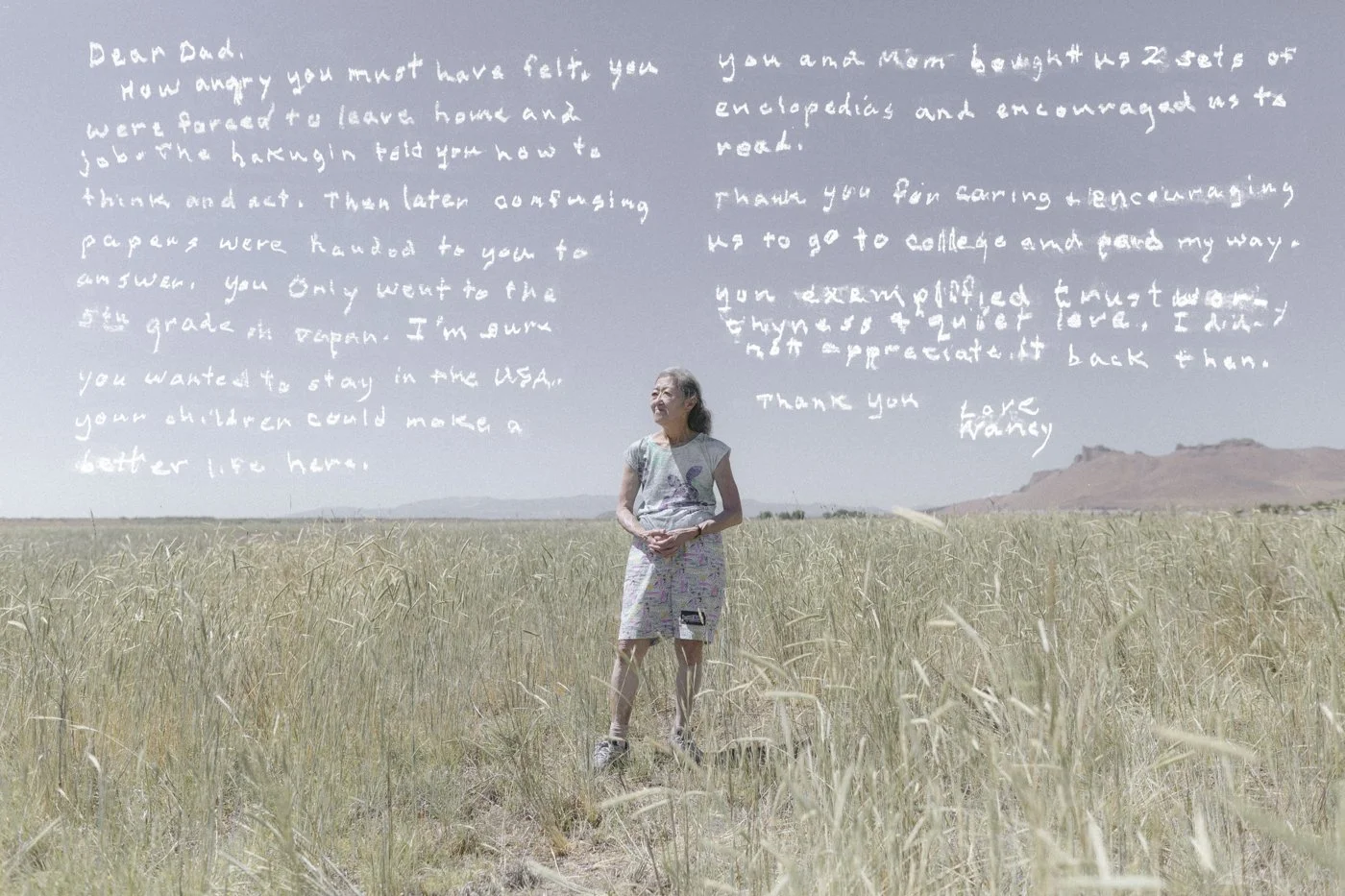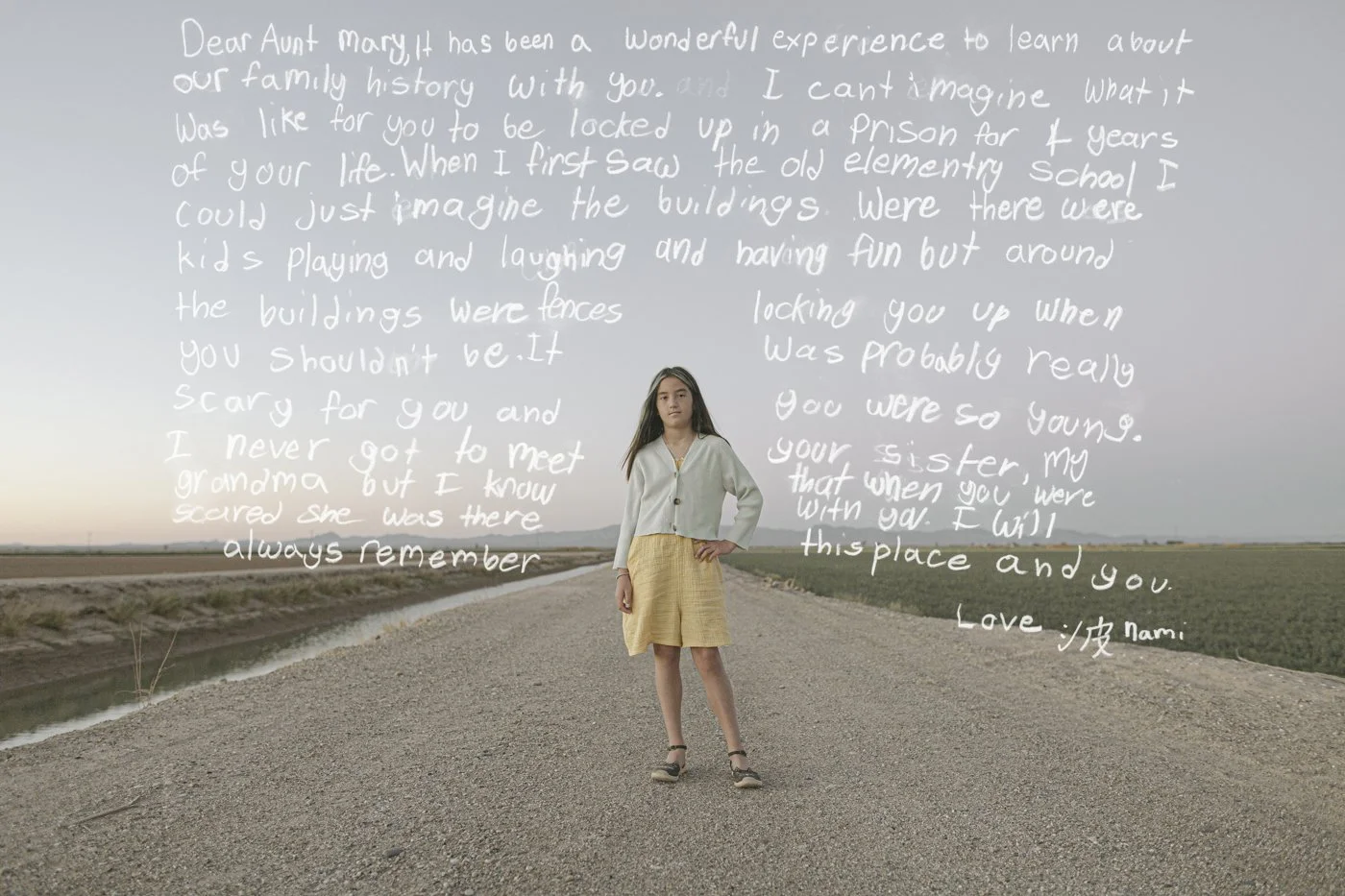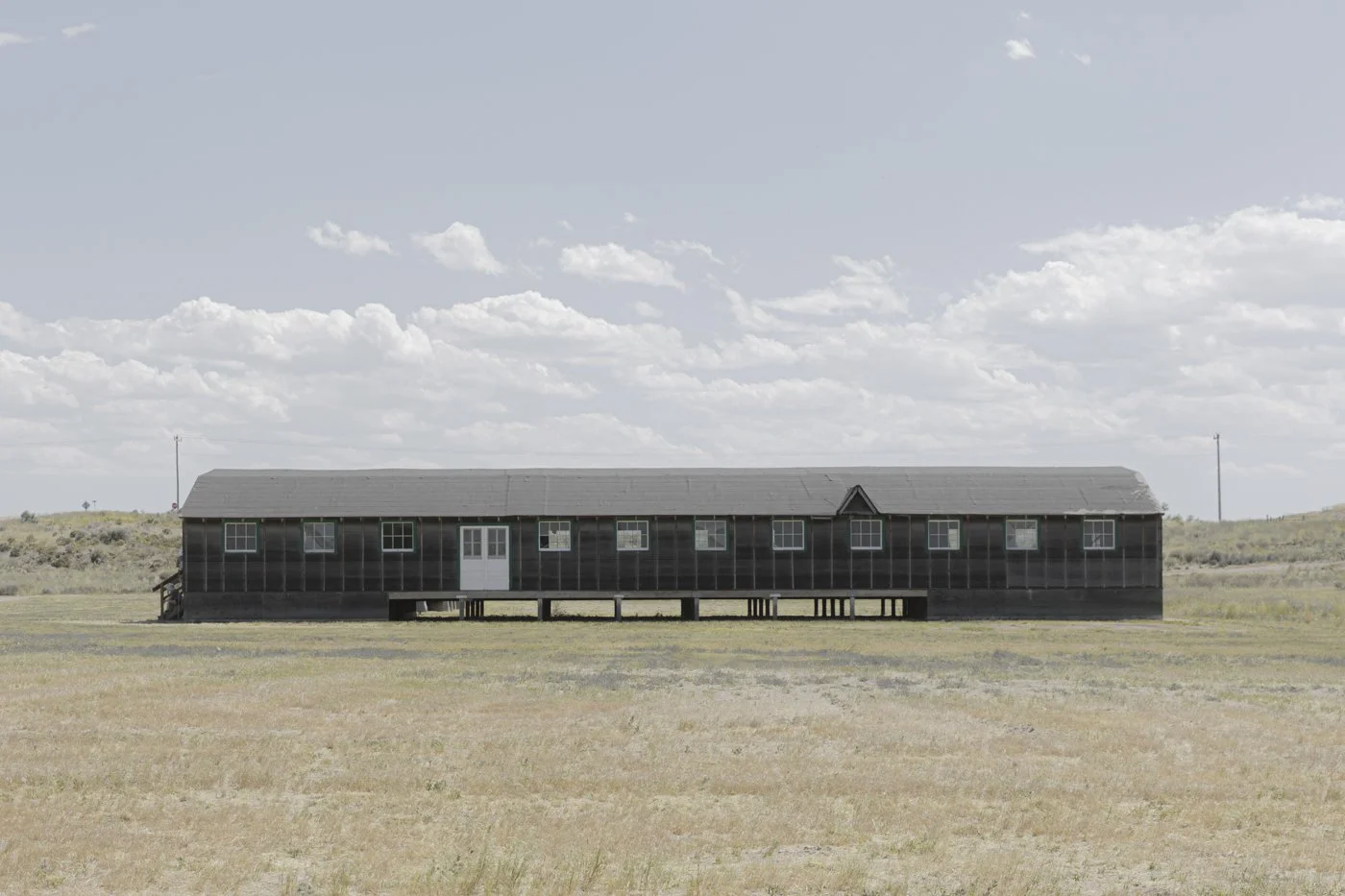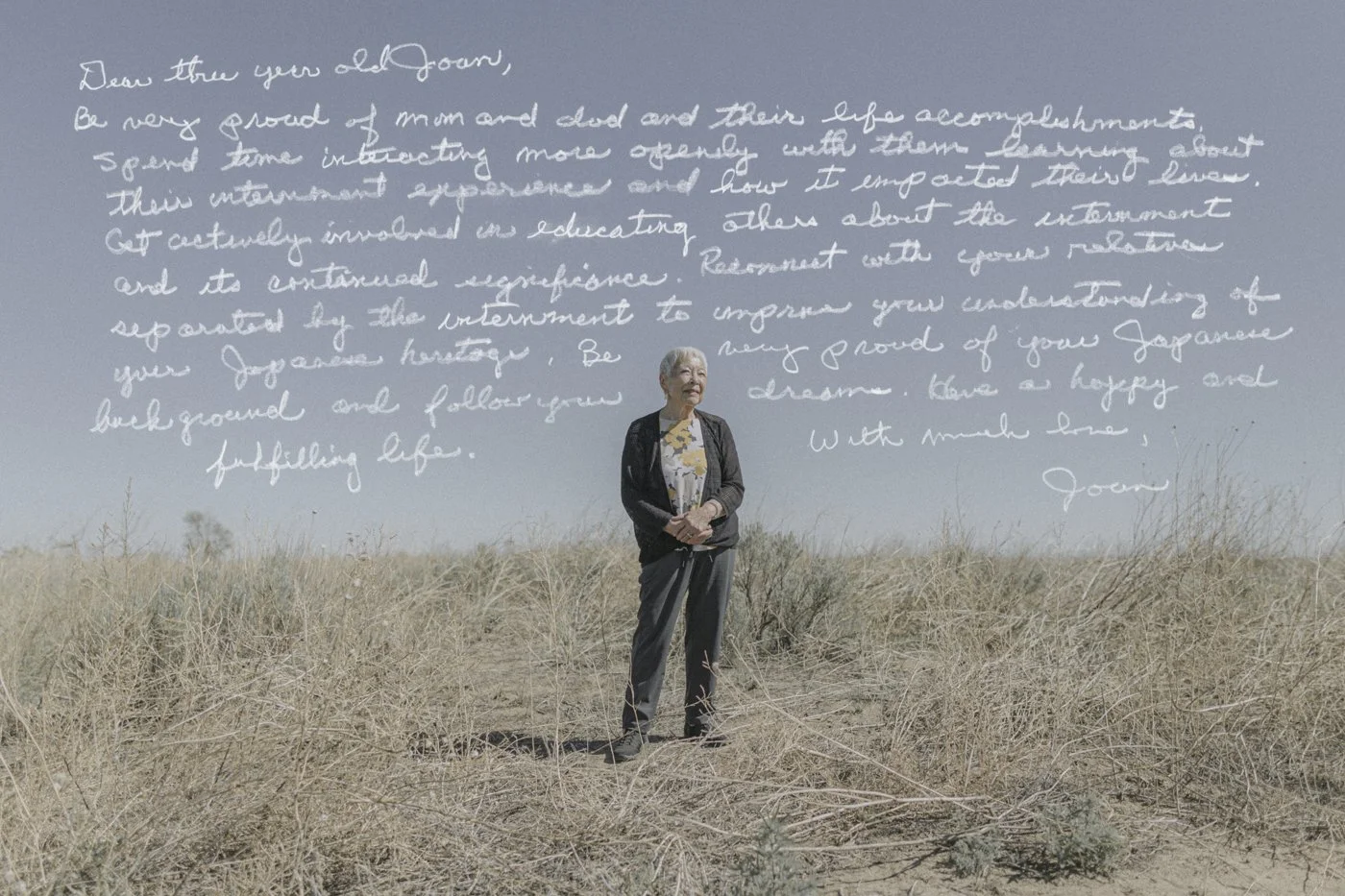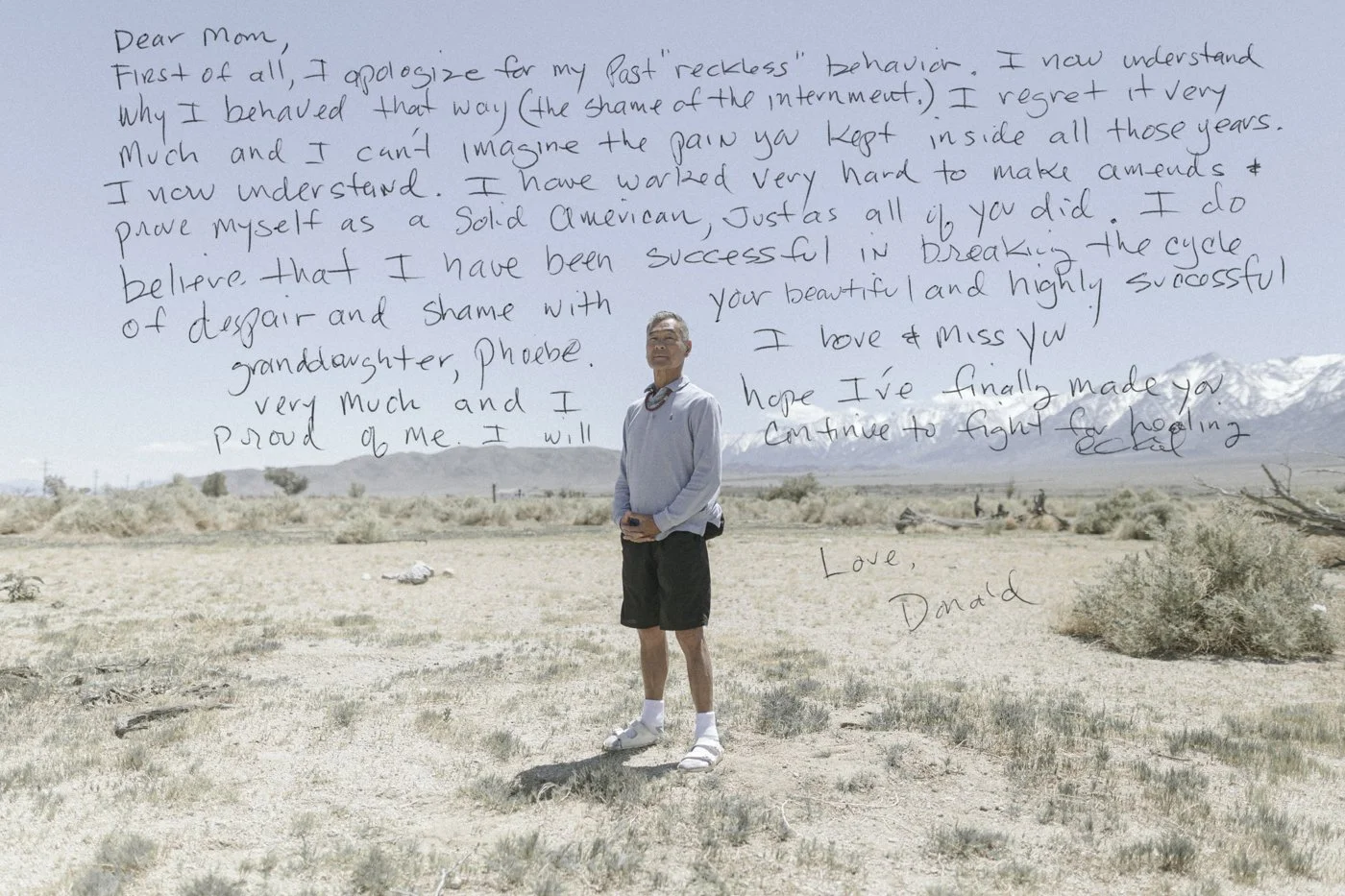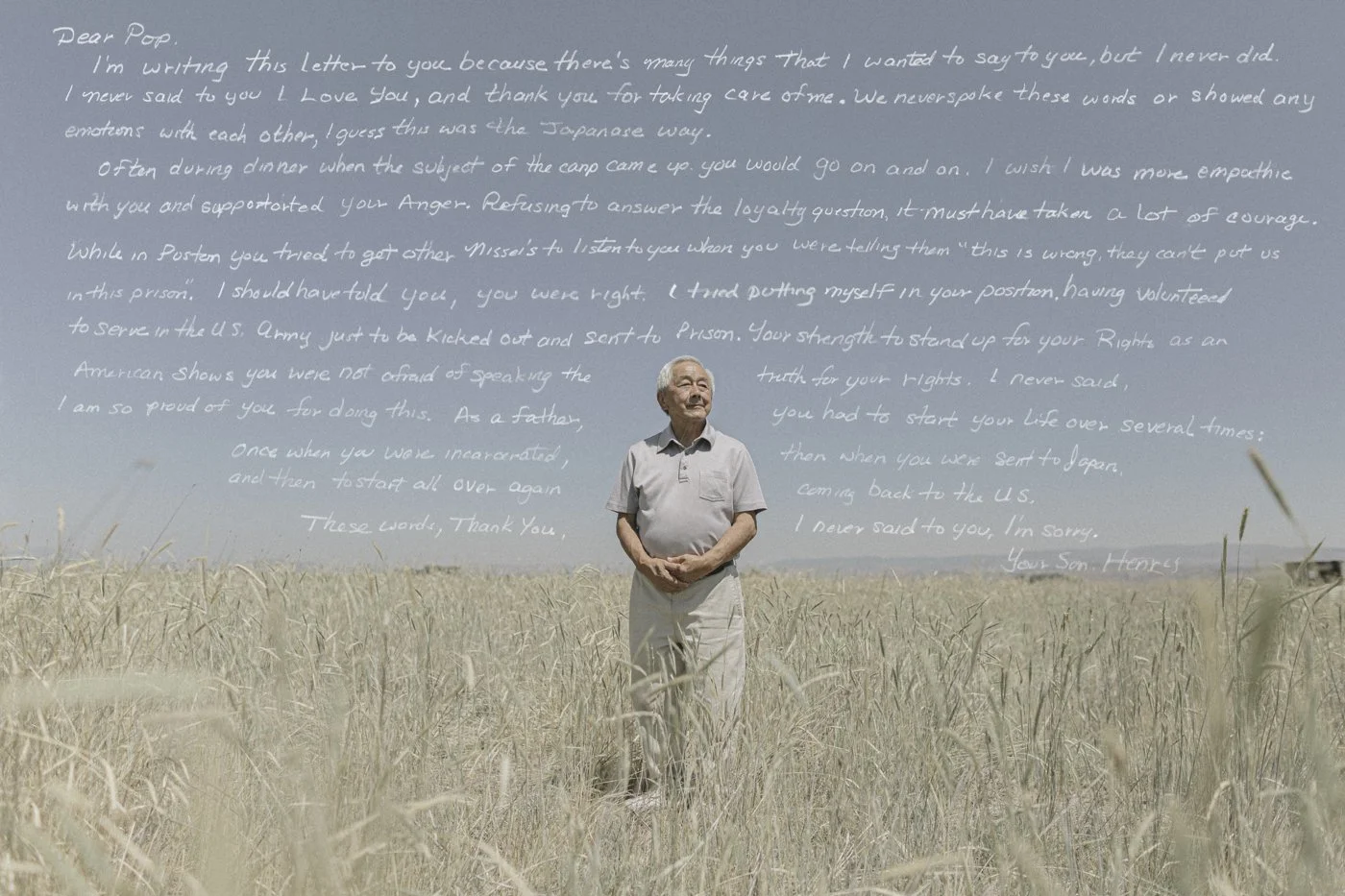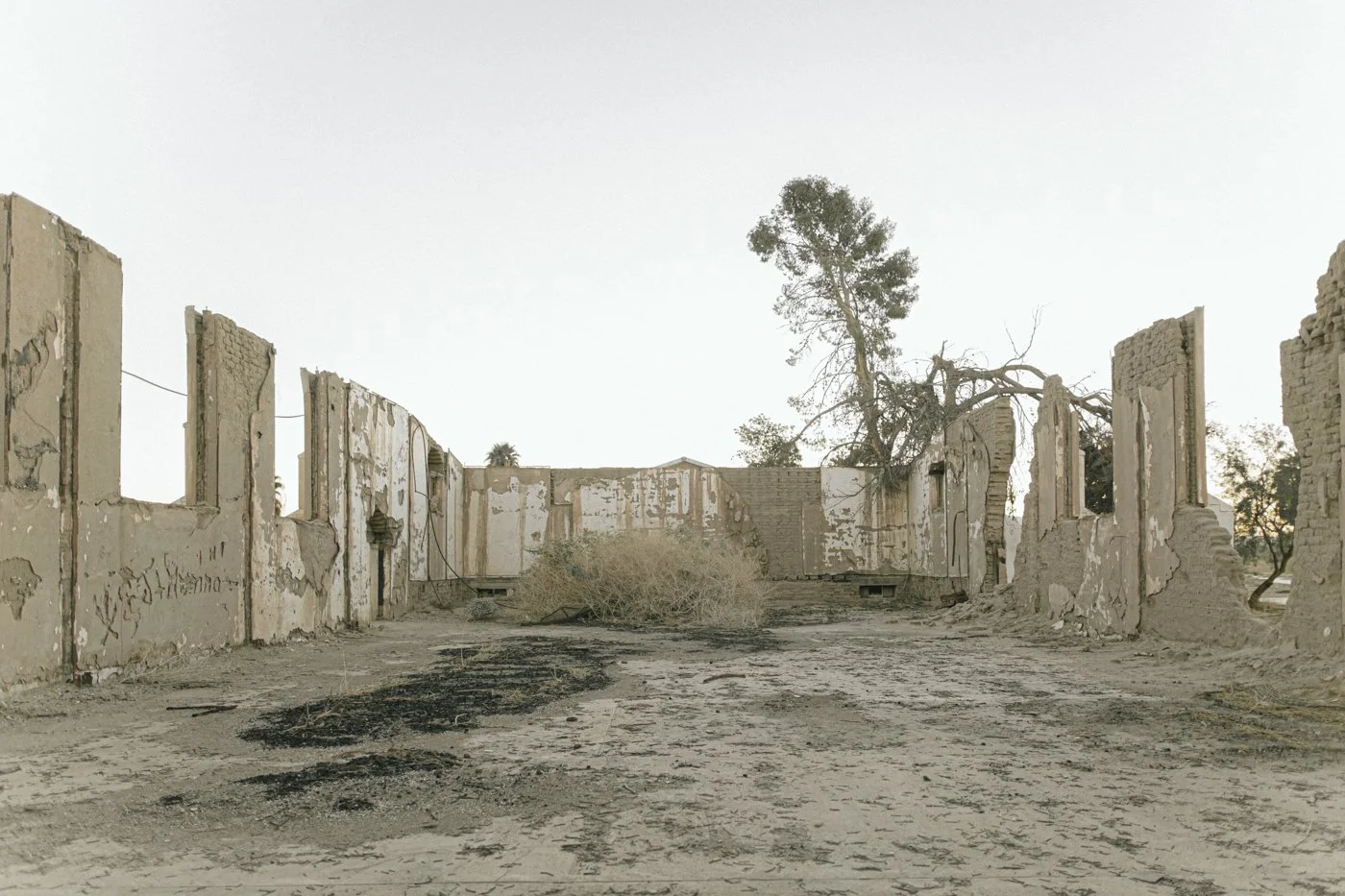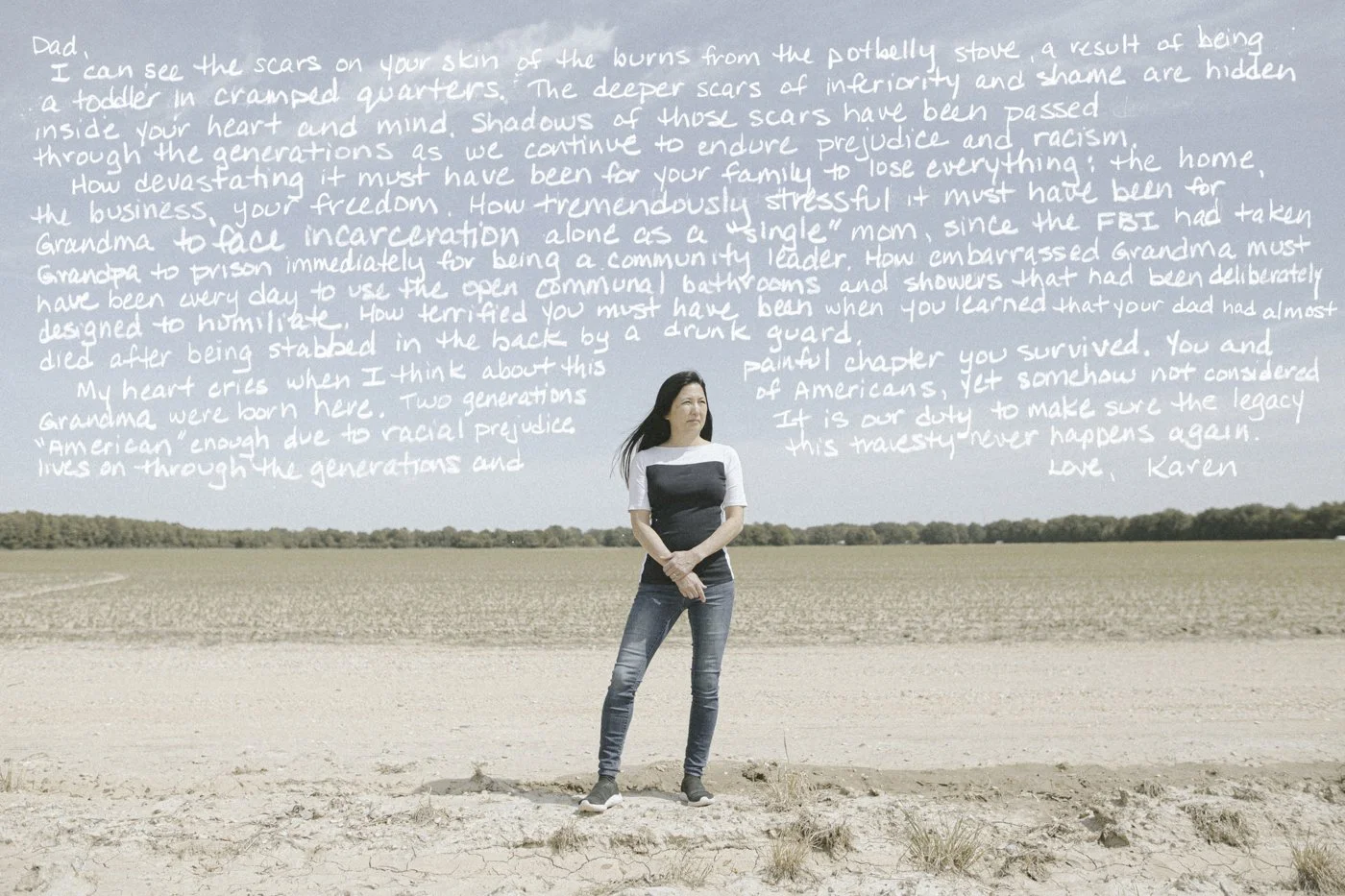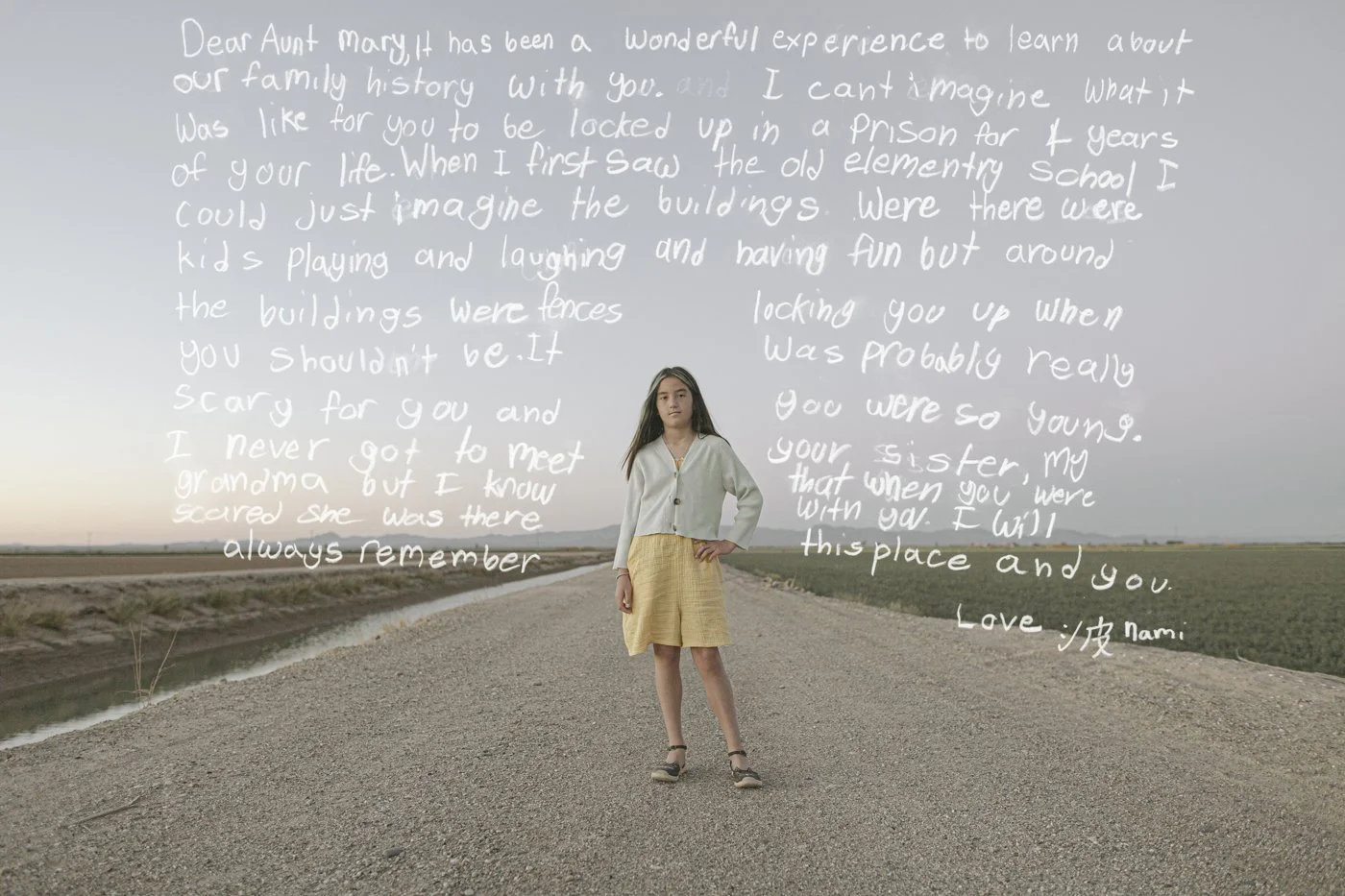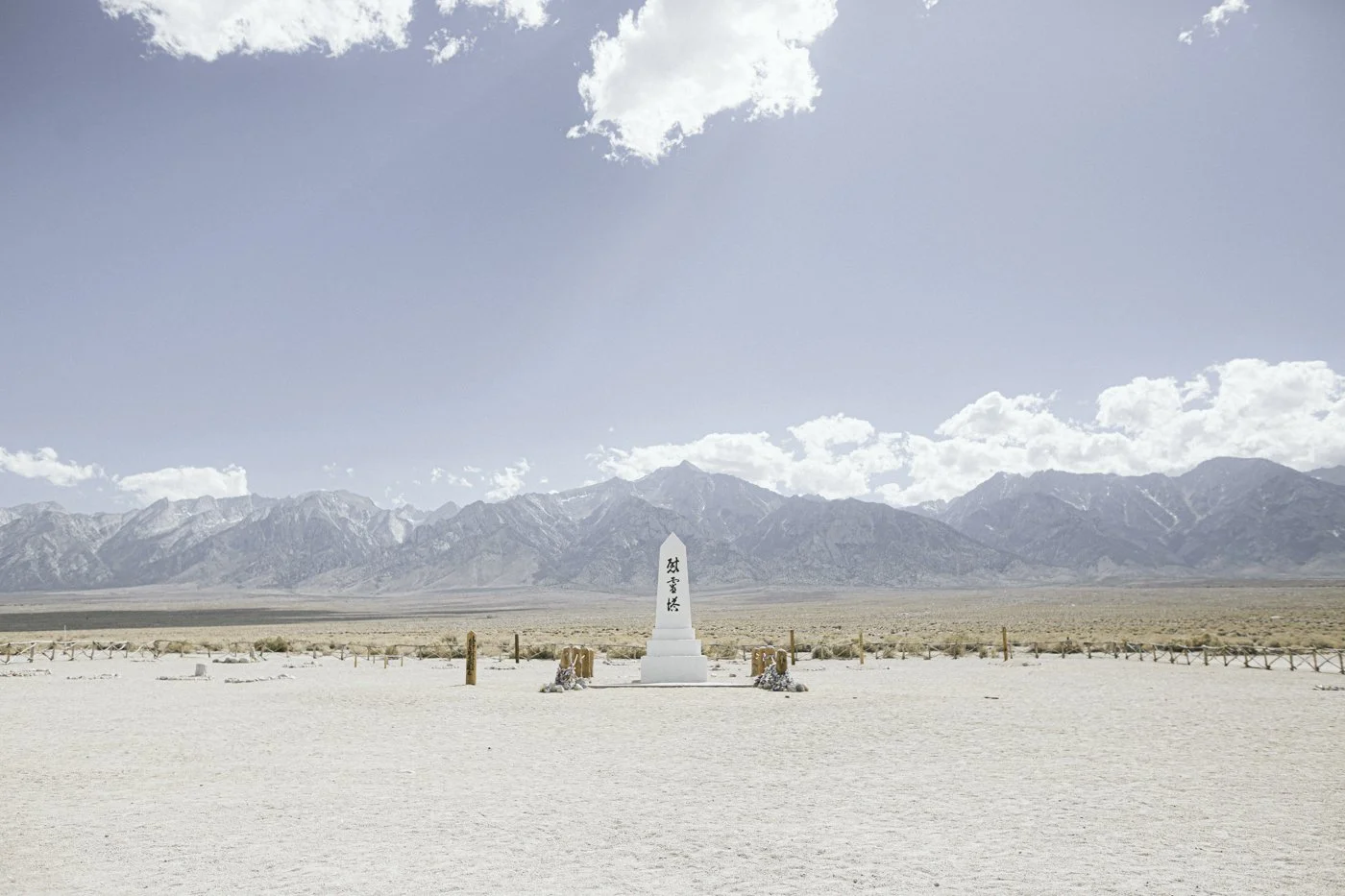SOCIALLY ENGAGED AWARD
RECIPIENT • Haruka Sakaguchi - The Camps America Built
JUROR • Andrea Wise – ProPublica
-
Following the Pearl Harbor attacks on December 7, 1941, President Franklin D. Roosevelt issued an executive order authorizing the forced removal and incarceration of 120,000 people of Japanese ancestry—two-thirds of whom were U.S. citizens—into concentration camps. Entire families were uprooted from their homes and sent to hastily constructed detention centers, some as crude as horse stalls, before being imprisoned in remote concentration camps for up to four years. The trauma of displacement, incarceration, and family separation continues to shape lives today.
Since the war, former incarcerees and their descendants have been making pilgrimages to these former camps. The word “pilgrimage” traditionally implies a journey to a sacred place, but for this community, it is a return to a site of trauma. Why revisit a place of forced confinement and suffering? Some return to commemorate a family member. Others seek healing and closure. Many find community and belonging by gathering together in these desolate landscapes.
There are ten camps in total, scattered across the country. Some are carefully stewarded by local communities and the National Park Service, while others are vulnerable to vandalism and neglect. Some face threats from nearby developments, such as the construction of a three-mile-long, security fence at Tule Lake or a 76,000-acre wind farm within the viewshed of Minidoka. Former incarcerees and their descendants are actively fighting to preserve the physical integrity of these sites.
This project documents the camps as they stand today and the former incarcerees and descendants who journey back to them. Each collaborator is asked to sit for a portrait and handwrite a letter: former incarcerees write to their younger selves during their incarceration, while descendants write to a former incarceree they are commemorating.
Through these personal letters and photographs, we explore a key question: What does it mean to be American? As racism, xenophobia, and authoritarianism—the same forces that led to the mass incarceration of Japanese Americans during World War II—resurface today under the guise of national security, these Japanese American families reveal the intergenerational impact of this dark chapter in U.S. history.
To see the entire project, please visit - thecampsamericabuilt.com.
-
It was an honor to review the strong submissions for the socially engaged award in this time of so many critically urgent social issues necessary of examination.
I was profoundly moved by several of the submissions and reminded of the transcendent power of photography to unite people across time, space, and cultures by reflecting and recording the human experience.
The Camps America Built is a prescient reminder of a dark chapter in American history that echoes loudly today.
By intimately and tenderly memorializing the way in which trauma inflicted by governments can ripple through generations, this project forces us to reckon with the past while we consider our future.
Photography is a resistance force against the loss of collective memory. Because when we photograph, we remember. And when we remember, we can learn.
– Andrea Wise • Visual Strategy Editor, ProPublica
-
This work can be exhibited in two formats: as physical photo prints or as a digital projection. In the print format, the ideal dimensions would be 16x20 inches, allowing the letters to maintain their intimate, handwritten feel while still being legible. Alternatively, in the digital projection format, the handwritten letters animate over the portraits while an audio recording of each individual reciting their letter plays, creating an immersive and layered storytelling experience.
About the Artist
Haruka Sakaguchi (b. 1990) is a Japanese documentary photographer based in New York City. She was born in Osaka, Japan and immigrated to the US with her parents when she was three months old.
Haruka's documentary work focuses on cultural identity and intergenerational trauma. Her clients include The New York Times, National Geographic, Time Magazine, ProPublica, The New Yorker, Smithsonian Magazine, BBC News, Bloomberg Businessweek, NPR, Newsweek and The Washington Post among other publications.
harukasakaguchi.com

